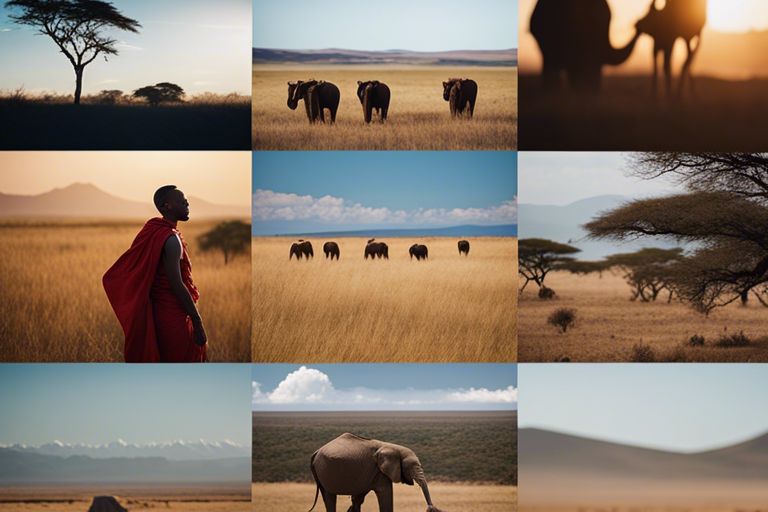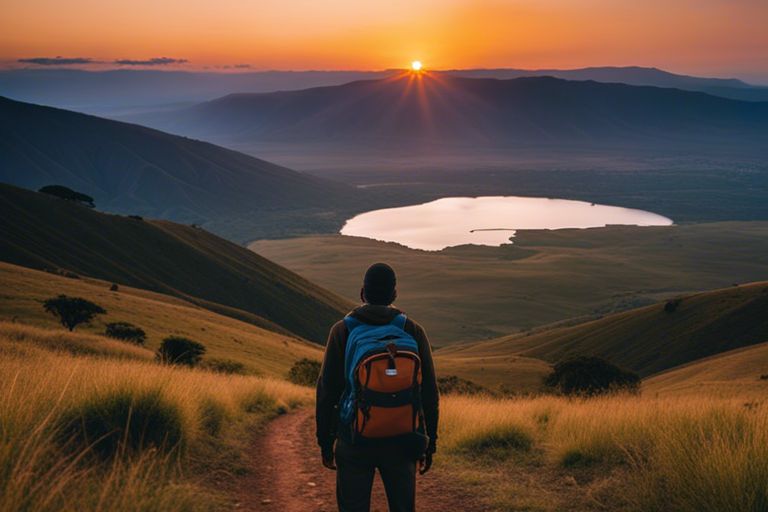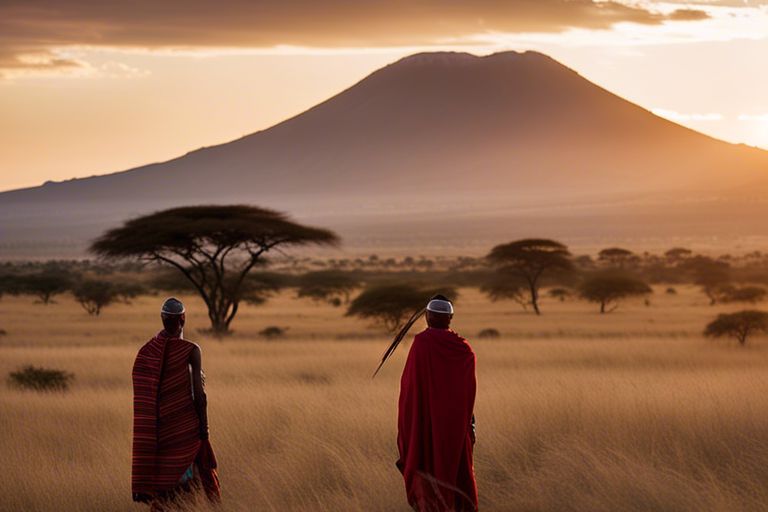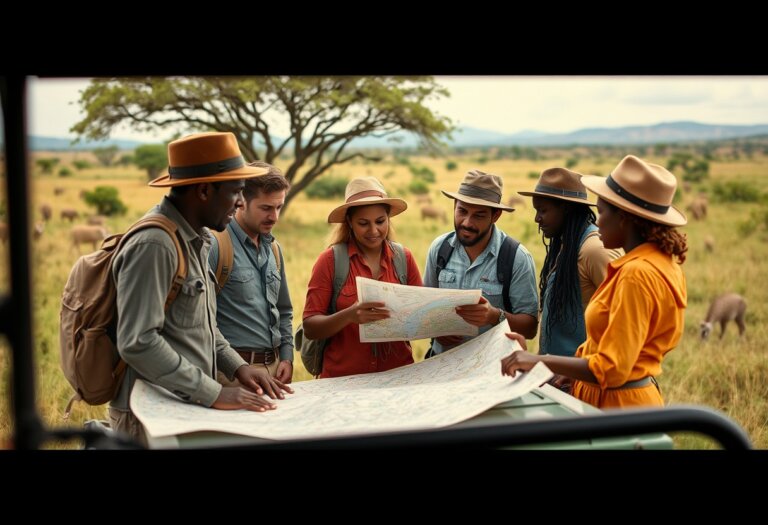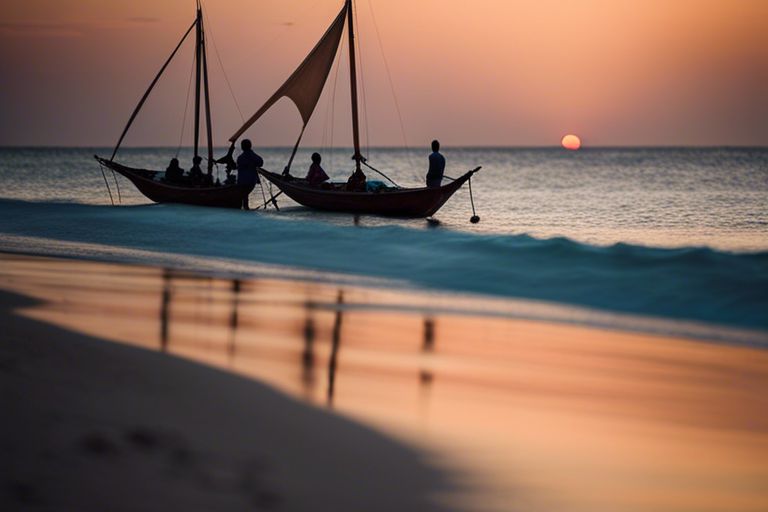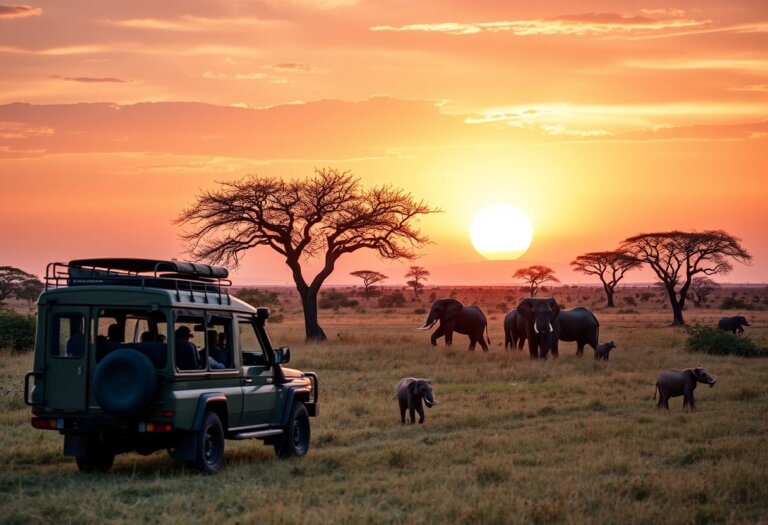Planning Your Tanzania Trip – A Step-by-Step Guide
Just imagine setting foot on the vast plains of Tanzania, where the untamed beauty of nature surrounds you at every turn. If you’re ready to commence on a thrilling adventure to this diverse East African nation, then this step-by-step travel guide is just what you need. From arranging safaris to exploring stunning national parks, Planning Your Tanzania Safari: A Step-by-Step Guide will ensure your journey is seamless and unforgettable. Let’s start planning your dream Tanzania trip!
Choosing Your Travel Dates
Best Time to Visit Tanzania
Before you book your tickets to Tanzania, it’s necessary to consider the best time to visit this beautiful country. The ideal time to go largely depends on what you want to experience during your trip. If you’re eager to witness the Great Migration in the Serengeti or explore the stunning beaches of Zanzibar, then the dry season from June to September is perfect for you. During this time, wildlife viewing is at its best, and the weather is pleasant with sunny days and cooler nights.
Avoiding Peak Season
For those looking to avoid the crowds and high prices, you may want to consider traveling during the shoulder seasons of March to May or October to November. During these times, the weather can be a bit more unpredictable, with short rains in November, but you’ll have the advantage of fewer tourists and better deals on accommodations and tours. Additionally, if you’re interested in bird watching, the green season from December to February is ideal as the bird populations soar and the landscape is lush and vibrant.
Any savvy traveler knows that avoiding peak season can have its perks. Not only will you have more flexibility in choosing accommodations and activities, but you’ll also get a more intimate experience with Tanzania’s incredible wildlife and landscapes. Plus, you’ll likely encounter fewer crowds on game drives and have a better chance of spotting elusive animals in the tranquil setting of the national parks.
Understanding the best time to visit Tanzania and how to avoid peak season will help you plan a more enjoyable and rewarding trip. Whether you’re dreaming of initiateing on a safari adventure, relaxing on the pristine beaches, or delving into the rich culture of this East African gem, selecting the right travel dates can enhance your overall experience and make your journey truly unforgettable.
Preparing Your Documents
Visa Requirements
To start planning your trip to Tanzania, you need to check the visa requirements for your nationality. Some countries are exempt from obtaining a visa for short stays, while others require a visa in advance. You can apply for an e-visa online before your trip or get a visa upon arrival at the airport. Make sure to have a valid passport with at least six months of validity left before entering Tanzania.
Vaccinations and Health Certificates
To ensure a safe and healthy trip to Tanzania, it’s imperative to check the recommended vaccinations and health certificates. Yellow fever vaccination is mandatory for travelers coming from some countries, and it’s advisable to be up to date on routine vaccinations such as measles, mumps, and rubella. Additionally, consider vaccinations for hepatitis A and typhoid. A visit to a travel health clinic or your healthcare provider will help you determine the necessary vaccinations and health certificates for your trip.
With Tanzania being a tropical destination, mosquito-borne diseases like malaria are a concern. It’s recommended to take malaria prophylaxis, use insect repellent, and sleep under mosquito nets to prevent mosquito bites and reduce the risk of contracting malaria.
Travel Insurance
To protect yourself against unexpected events during your trip to Tanzania, it’s crucial to have travel insurance. Your travel insurance should cover medical emergencies, trip cancellations, lost or stolen belongings, and emergency evacuations. Make sure to read the policy details carefully and choose a plan that suits your travel needs. In case of any unforeseen circumstances, having travel insurance will provide you with peace of mind and assistance when you need it the most.
Preparing for your Tanzania trip includes gathering all necessary documents, such as your passport, visa, vaccination records, and travel insurance details. By ensuring you have everything in order before your departure, you can focus on enjoying the incredible experiences Tanzania has to offer without any worries about documentation or safety concerns.
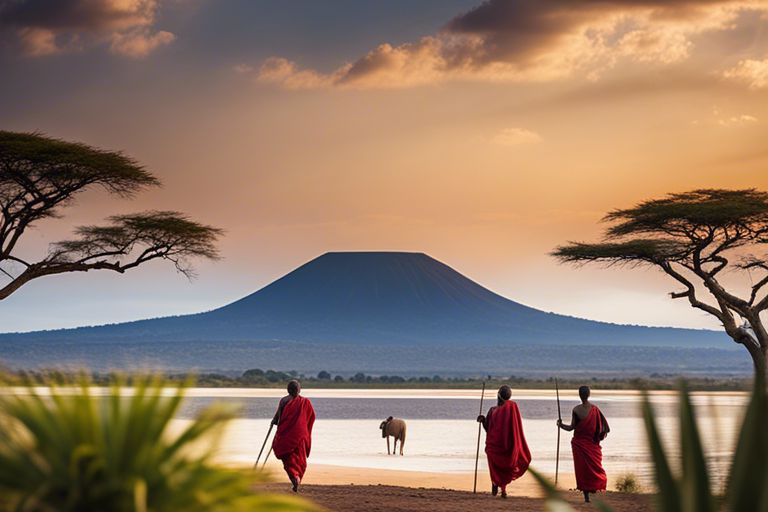
Planning Your Itinerary
Keep in mind that Tanzania is a vast and diverse country with a wide range of attractions to explore. When planning your itinerary, make sure to include some of the must-visit destinations to make the most of your trip.
Must-Visit Destinations in Tanzania
One of the top destinations you should consider including in your itinerary is the iconic Serengeti National Park. Known for its stunning wildlife and the great migration of wildebeest and zebras, a visit to the Serengeti promises an unforgettable safari experience. Another must-visit destination is the beautiful island of Zanzibar, where you can relax on pristine beaches, explore historic Stone Town, and indulge in delicious local cuisine.
Creating a Realistic Travel Schedule
Planning your Tanzania trip can be overwhelming, especially with so many incredible places to see. When creating your travel schedule, consider factors like travel time between destinations, the duration of your stay at each location, and any activities or tours you want to include. Be realistic about how much you can fit into your itinerary to avoid feeling rushed or overwhelmed during your trip.
To ensure a smooth travel experience, it’s crucial to book your flights and accommodations well in advance. Research airlines that fly to Tanzania and compare prices to find the best deals for your travel dates. Similarly, browse online platforms or contact local hotels and lodges to secure your accommodations ahead of time, especially if you plan to visit popular tourist areas.
Booking Flights and Accommodations
Realistic budgeting is crucial when booking flights and accommodations for your Tanzania trip. Consider setting aside a portion of your budget specifically for these expenses, keeping in mind that prices may vary depending on the season and the level of comfort you prefer. Additionally, look out for package deals or discounts offered by airlines and accommodations to save money on your bookings.
The earlier you book your flights and accommodations, the better chance you have of securing preferred travel dates and rooms. By planning ahead and confirming your bookings in advance, you can focus on enjoying your trip without worrying about last-minute availability issues.
Packing Essentials
Clothing and Footwear
Many travelers wonder what clothing and footwear are vital for a trip to Tanzania. When packing for your adventure, remember that the climate can vary. It’s wise to pack lightweight, breathable clothing for hot days and layer up with a jacket or sweater for cool evenings. Any long-sleeved shirts and pants are also recommended to protect yourself from the sun and mosquitoes. Comfortable walking shoes or hiking boots are a must, especially if you plan on exploring national parks or trekking Mount Kilimanjaro.
Toiletries and Personal Care Items
Personal hygiene is crucial when traveling, so don’t forget to pack your toiletries and personal care items. This includes items such as toothbrush and toothpaste, shampoo, conditioner, body wash, sunscreen, and insect repellent. Personal medications should also be on top of your list. With limited access to certain products in remote areas, it’s vital to pack everything you may need during your trip.
With many campsites and lodges having limited or no electricity, consider bringing a portable charger for your devices. Additionally, a universal adapter is handy for charging your electronics in Tanzania. Remember to pack a camera or a smartphone to capture the stunning landscapes and wildlife you’ll encounter on your journey.
Electronics and Accessories
Carefully consider the electronics and accessories you’ll need for your trip to Tanzania. In addition to your camera or smartphone, a headlamp or flashlight is vital for navigating in the dark or in case of power outages. A power bank can be a lifesaver when you’re on the go and need to recharge your devices. Don’t forget to pack a travel-sized first aid kit for minor emergencies.
The key to a successful trip is packing smart and light. Remember to double-check your vitals list before heading to Tanzania, and most importantly, don’t forget your sense of adventure and curiosity to explore this beautiful country.
Budgeting and Money Matters
Setting a Realistic Budget
All set to commence on your dream Tanzania trip? Before you go, it’s important to set a realistic budget. Consider your accommodations, meals, transportation, park fees, tour guides, souvenirs, and any extras you might want to indulge in. Research the average costs in Tanzania to ensure you have enough funds to cover your expenses. Recall, it’s better to overestimate than to run out of money halfway through your journey!
Currency Exchange and Payment Options
Setting out on a Tanzanian adventure means navigating the local currency and payment options. The official currency is the Tanzanian Shilling (TZS), but US dollars are widely accepted in tourist areas. It’s advisable to have a mix of cash and credit cards for flexibility. ATMs are available in major cities, but it’s wise to carry enough cash when traveling to remote areas where access to ATMs may be limited.
Make sure to inform your bank of your travel plans to avoid any issues with using your cards abroad. Also, be mindful of exchange rates and any additional fees that may apply when using your cards overseas.
Tipping and Gratuities
When budgeting for your Tanzania trip, don’t forget to factor in tipping and gratuities. Tipping is customary in Tanzania, especially in the service industry. It’s a way to show appreciation for good service and is expected in restaurants, hotels, and for tour guides and drivers. A general guideline is to tip around 10% – 15% of the total bill. However, always check if a service charge is already included in your bill before tipping.
This extra cost may vary depending on the level of service you receive, so be prepared to have some extra cash on hand for tipping during your Tanzanian adventures.
Staying Safe and Healthy
Despite the allure of adventure and exploration, it’s crucial to prioritize your safety and well-being during your Tanzania trip. Here are some key tips to ensure a safe and healthy journey:
Safety Precautions
When traveling in Tanzania, it is important to take necessary safety precautions. Ensure that you have a reliable guide or tour operator, particularly for wildlife safaris or mountain treks. Keep a close eye on your belongings in crowded areas and avoid displaying expensive items in public.
Dealing with Altitude Sickness
Healthy individuals can also experience altitude sickness when travelling to high altitudes such as Mount Kilimanjaro or the Ngorongoro Crater. Symptoms may include headache, nausea, and fatigue. Be prepared by acclimatizing slowly, staying hydrated, and considering medication such as acetazolamide under medical advice.
Dealing with altitude sickness requires a proactive approach. If you start experiencing symptoms, it’s crucial to communicate with your guide or tour group. Descending to lower altitudes might be necessary for your health and well-being.
Staying Hydrated and Healthy
Safe drinking water is crucial for your health in Tanzania. Stick to bottled water from reputable brands and avoid tap water. Dehydration can sneak up on you, especially in hot and arid climates. Keep a reusable water bottle handy and remember to drink regularly to stay hydrated and healthy.
This is especially crucial during outdoor activities like safaris or hiking where you might not have easy access to water sources. Prioritize hydration to prevent fatigue, headaches, and other health issues that can arise from dehydration.
Conclusion
Upon reflecting on the steps outlined in this guide, you are now equipped with the tools and knowledge to plan a memorable trip to Tanzania. By following these steps, you can ensure a smooth and enjoyable experience as you venture through this diverse and culturally rich country.
Remember to research, prepare, and book in advance to make the most of your time in Tanzania. Whether you are seeking wildlife adventures, beach relaxation, or cultural immersion, following these steps will help you make the most of your trip to this fascinating East African destination.

